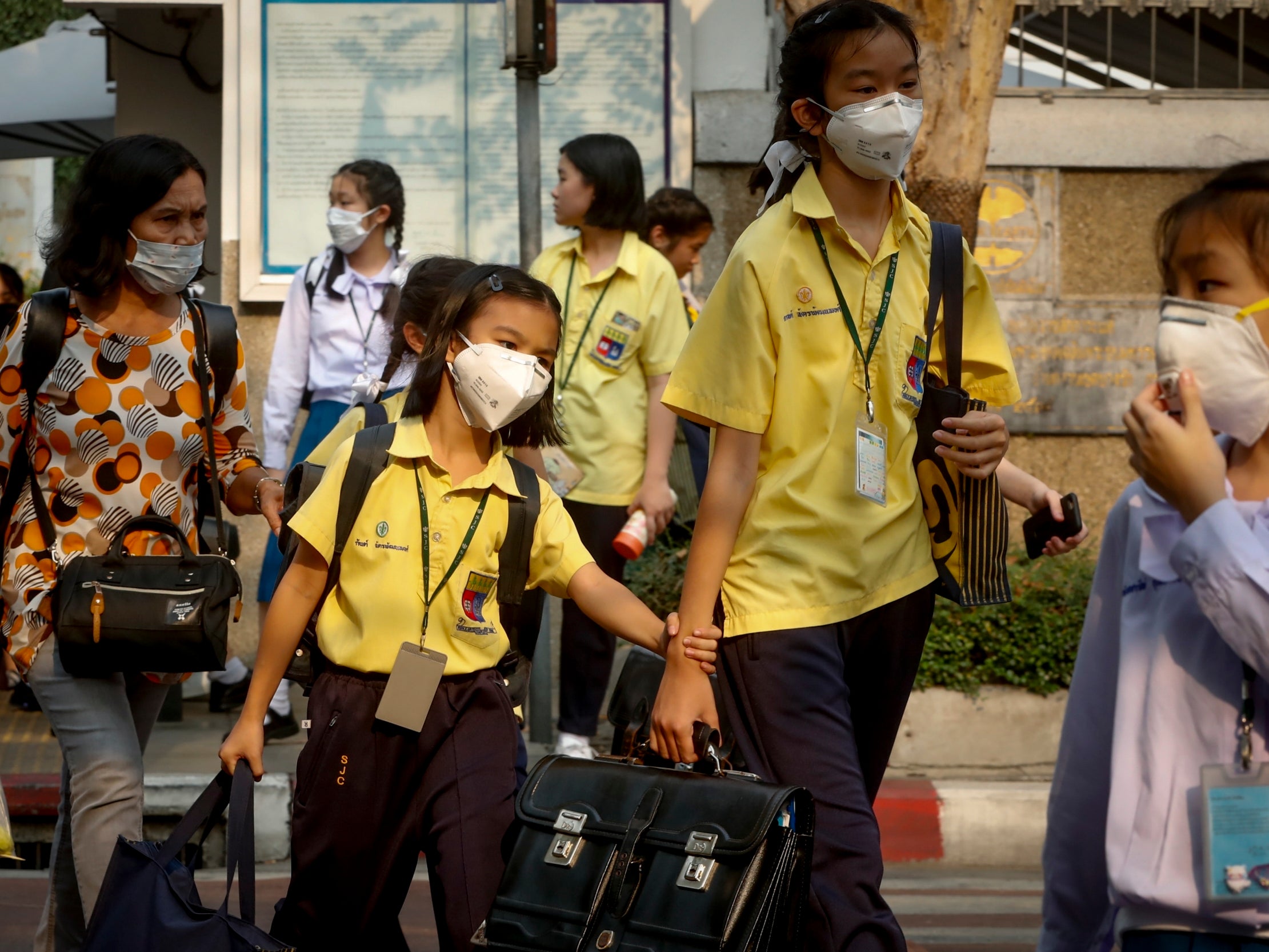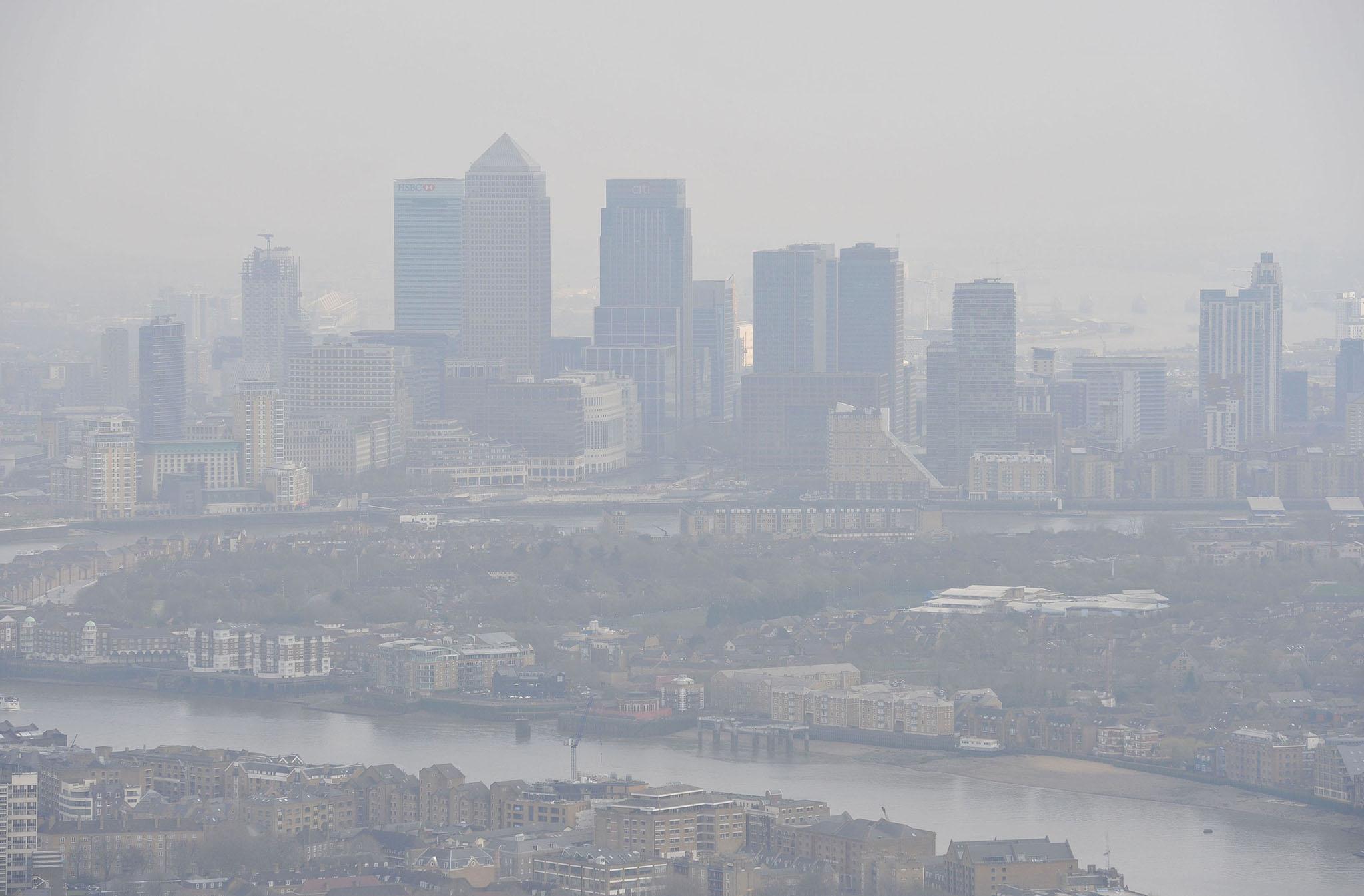We might never fully understand the harms of our toxic air, but that doesn’t mean we shouldn’t act
Analysis: As a study points to a link between exhaust fumes and hallucinations, health correspondent Alex Matthews-King says calls for a precautionary approach should not be ignored

The possibility of a link between air pollution and psychosis-like hallucinations and paranoia is the latest warning that the conveniences we take for granted as a society cause levels of harm we have not recognised.
It is much too early to say that exhaust fumes – seemingly inescapable in big cities – are causing the elevated rates of psychosis and mental health conditions seen in urban areas.
The latest research from King’s College London found that “psychotic episodes” were more common in teenagers living in the most polluted areas of the UK, such as Birmingham, London and Cardiff.
In fact they were twice as common in those living in cities as in rural areas, and their findings suggest as much as 60 per cent of this can be explained by higher levels of pollutants such as nitrogen dioxide and fine exhaust particles.
This is the first time such a link has been proposed, or even looked at, to the best of the authors’ knowledge. So we need to be cautious.
While there is a growing body of evidence implicating air pollution in heart and lung conditions, and even neurological ones like dementia, the link with mental health must now be replicated in multiple well-powered studies before we can have any certainty.
At a briefing on Tuesday, Dr Helen Fisher, one of the senior authors, likened the process of understanding air pollution to one of the major environmental health risks of the last century.
“It’s no different from how smoking and lung cancer would have been originally,” she said.
“We all thought, ‘Obviously there must be an association,’ but you can’t really look at that as definitive until you’ve looked at that in lots of different studies.”
It is unlikely to ever be that definitive. Despite the tobacco industry’s best efforts to obfuscate the causes of lung cancer, early researchers could at least look at one physical cause and one physical effect.
While the researchers at King’s are comparing rural and city pollution, both groups are exposed to ample exhaust fumes and other emissions – a recent study said roast dinners can induce Beijing smog levels in country kitchens.
Our mental health is also subject to an array of issues, including our physical wellbeing, family psychiatric history, finances, education levels, crime, safety and habits such as alcohol and cannabis use.

Dr Fisher and colleagues adjusted for many of these in their model but accept it cannot be perfectly controlled; they also suggest there could be unmeasured factors which go hand in hand with air pollution – such as sleep-disrupting traffic noise.
We also cannot forget that this was looking at less-severe psychotic episodes. Diagnosed psychosis is a severe, but rare, condition and we can confidently assume that even if there is an effect from air pollution it is on nothing like the magnitude of risk that tobacco has with cancer.
As with all studies with unexpected and interesting findings, the take-home message is “more research needed” to prove the association in bigger groups, over longer periods and in greater detail.

But as the authors note we are increasingly living in an urbanised world, and despite the – in some cases begrudging – efforts to cut air pollution, more people will be exposed to potentially damaging chemicals on a regular basis.
So while we wait for more data, the authors recommend a precautionary approach. Sadly there are myriad examples of society ignoring pragmatic change because of profits or inconvenience, so you may not want to hold your breath.
Join our commenting forum
Join thought-provoking conversations, follow other Independent readers and see their replies
Comments
Bookmark popover
Removed from bookmarks